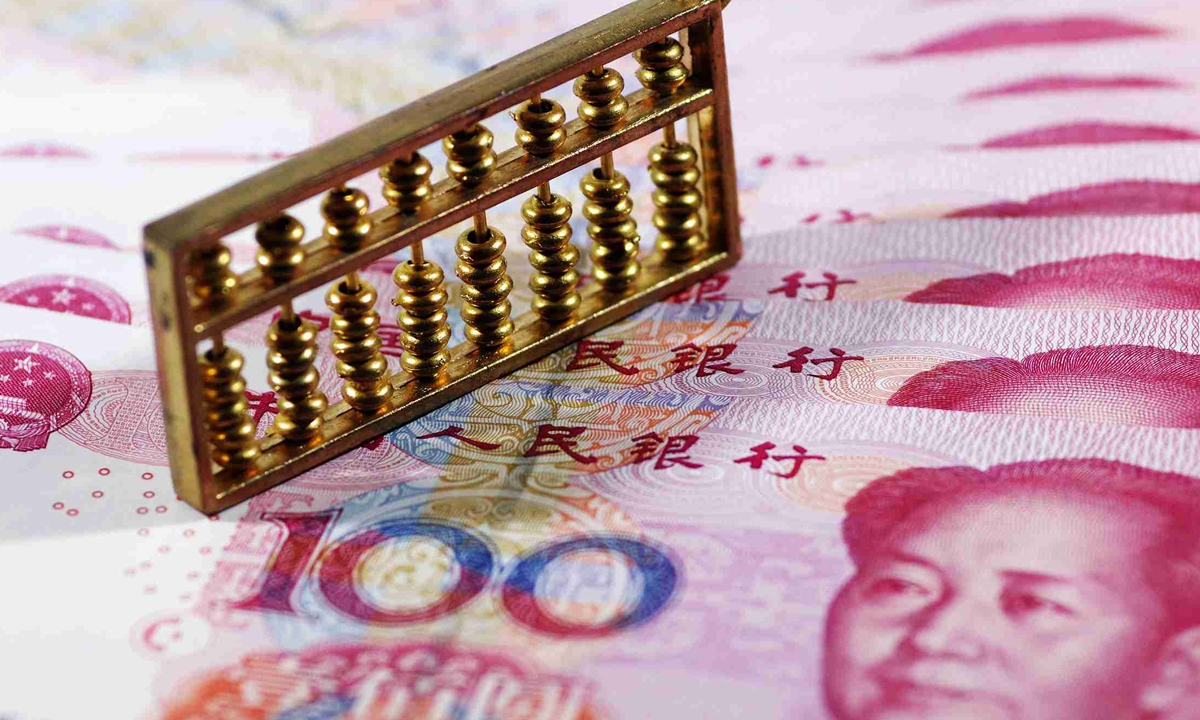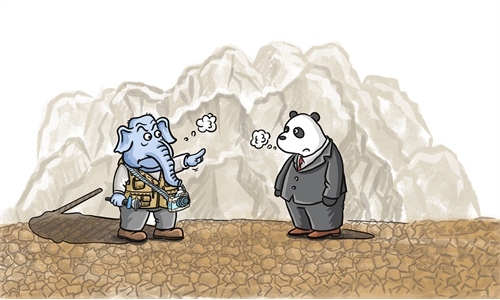India's attempt to block use of yuan for oil imports will be to detriment of its own oil companies: experts

Chinese yuan Photo:VCG
The Indian government's reported attempt to block its oil importers from using Chinese yuan to pay for Russian oil is an ill-advised move as it will push up companies' operating costs and hamper their normal operations, Chinese experts said on Tuesday.
New Delhi has been "uncomfortable" with using yuan for Russian oil import settlements, Reuters reported, citing Indian finance ministry officials.
The "discomfort" has held up payment for at least seven cargoes. While Indian traders are seeking alternative methods of settlement, Russian sellers have held out for yuan, Reuters said.
Russia and India have been arguing over oil settlements since the beginning of the year. With Russia being banned from accessing the SWIFT system, New Delhi has sought to promote rupee settlements for Russian oil imports, which clearly "is not a good choice for Moscow," experts said.
The rupee doesn't circulate much internationally, and many countries won't use it for transactions. "Holding rupees means Russia can only use them to buy Indian products, while there isn't much to buy," Liu Zongyi, secretary-general of the Research Center for China-South Asia Cooperation at the Shanghai Institutes for International Studies, told the Global Times on Tuesday.
Also, the rupee's exchange rate is relatively volatile, and Russian profits are likely to shrink sharply as a result, experts said.
Russia has refused any more rupee payments, media outlets reported in June.
Using yuan is clearly a better choice as the Chinese currency has become the world's fifth most-used currency for reserves, payments and trade, and the third most-used for trade financing. In the first seven months of the year, the yuan's share of global trade settlements hit a record of 24 percent, according to data from China's central bank.
India has been attempting to economically disengage with China over recent years. However, such government intervention in the economy will push up the costs of Indian oil importers and disrupt their normal operations, Liu said.
India's recent purchases of Russian oil have been a big support for its own economic performance. Hampering the transactions may be an ill-advised move, Liu noted.
Moreover, though New Delhi aims to promote the internationalization of the rupee, the effort lacks a basic foundation due to the South Asian country's underdeveloped manufacturing sector, which leads to insufficient exports, Liu added.



